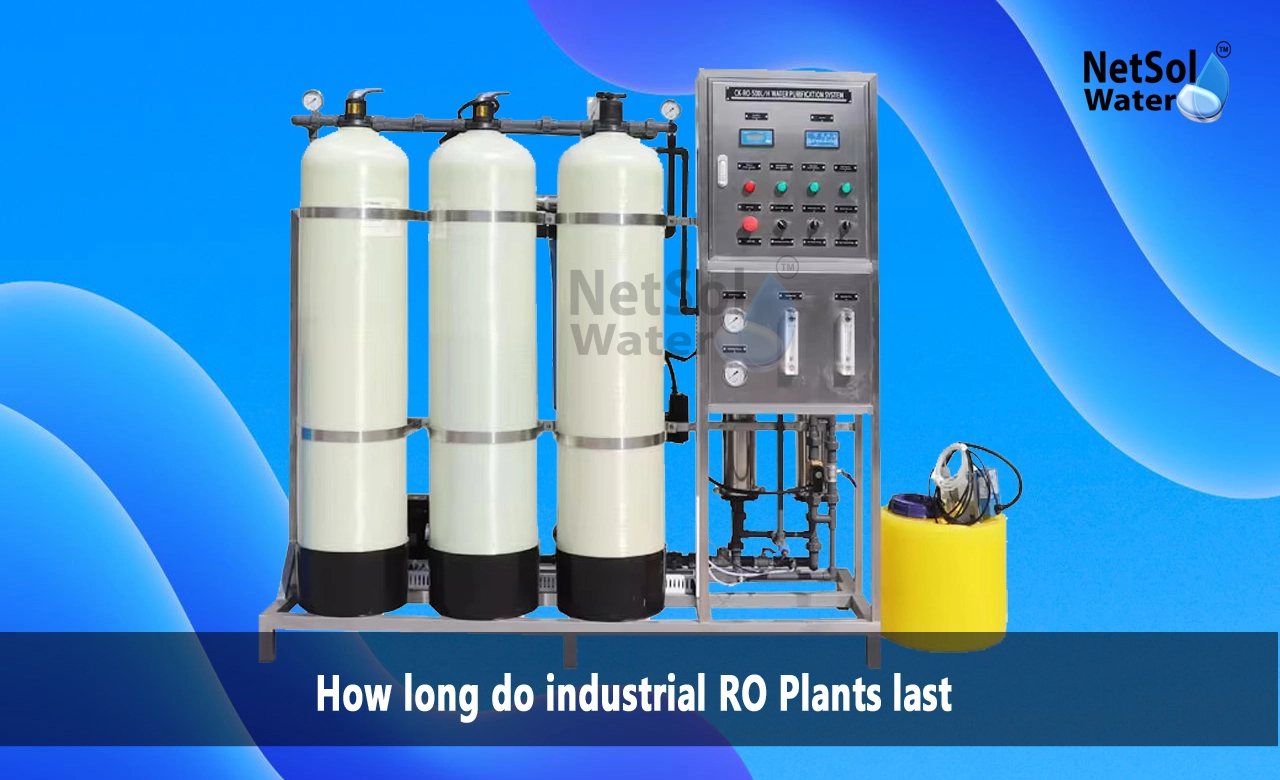An industrial reverse osmosis (RO) plant is a water treatment facility that uses the reverse osmosis process, to eliminate harmful compounds and pollutants from water in industries. It is a method that cleans or desalinates tainted water to provide demineralized, pure water that may be used in a variety of industrial applications without harm.
But, aren’t you more concerned about the age of Industrial RO plants, i.e., how long does the industrial RO Plants last!
Types of industrial RO Plants
Industrial RO Plants come in two different configurations: completely automatic and semi-automatic.
1. Higher water production rates are provided by fully automatic industrial RO plants. They are pneumatically and mechanically operated, providing accurate washing and filling.
2. Industrial RO plants that are semi-automatic require manual washing. The remaining tasks are all automatic.
How Long do Industrial RO Plants Last?
Reverse osmosis (RO) systems are now the industry standard for removing impurities, from all types of feed water sources, as well as for reusing wastewater in a variety of industrial processes.
Systems for industrial reverse osmosis typically last 10 to 15 years!
The RO membrane and filters need to be replaced from time to time, even if the systems themselves have a lengthy lifespan. Every six months to a year, the prefilters and post filters should be changed.
Depending on the application, a RO membrane element typically lasts three to seven years. However, the membrane components in certain RO systems might only survive one to two years.
The system design, element selection, pretreatment, system operation, membrane cleaning, and system maintenance, all affect the lifespan of RO elements.
When to replace industrial RO Plant membrane?
It can appear straightforward on the surface to know when to replace the membrane components, in a reverse osmosis (RO) system. Many businesses will follow one or more of the following recommendations, when updating their membrane in an effort to keep things simple:
• Often 3 years after the membrane manufacturer's guarantee expires.
• Or, a rise in the RO permeates conductivity in accordance with their required water quality.
• Or, a planned decrease in the permeate/product flow rate in response to the water requirement.
The membrane could be replaced too soon if simple constraints are relied upon.
The lifespan of RO membrane components has been reported to exceed ten years, while maintaining salt rejection and permeate flow rates close to those of their initial design. Age rarely has much of an impact on the lifespan of the membrane, since the performance degradation brought on by membrane aging happens so gradually. Rather, how effectively the RO system is maintained, has a greater impact on replacement.
Benefits of Industrial RO Plants
• A decrease in dangerous dissolved pollutants;
• Lower sodium;
• Lessened taste and odour issues;
• Less harmful to the environment;
• Simple to install and keep up;
Conclusion
Industrial RO plants are expected to be used more frequently across industries, because to their growing advantages and benefits. It is less dangerous, more effective, economical, environmentally friendly, and low maintenance.
Industrial RO Plants can be specially designed by Netsol Water Solutions’ to satisfy a range of industrial requirements. As a commercial company, we are aware that you require the best systems available, at reasonable and competitive pricing, which is why we collaborate with each of our clients to provide high-quality Industrial RO Plants.
For further information or to make an Industrial RO Plant purchase, please contact us at +91-9650608473 or enquiry@netsolwater.com



